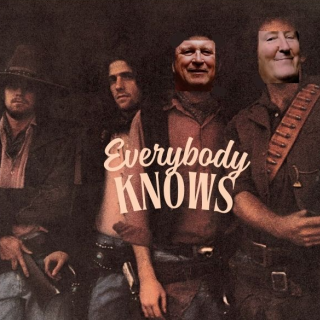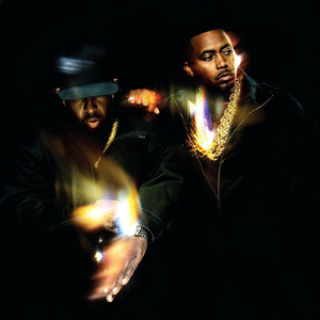Advertisement
Ahmir Questlove Thompson wrote a book detailing the first 50 Years of Hip Hop. Questlove’s book: Hip Hop Is History.
Ahmir Questlove’s Thompson is the drummer for the Roots. Do you have a favorite Roots song? I’m biased towards the Roots song, The Next Movement. I find some of the lyrics empowering.
The Roots are headlining the Essence Festival at the superdome in New Orleans as I type this review….
Questlove is the bandleader during the Tonight Show with Jimmy Fallon. Excuse me, Questlove is the music director for everyone’s dream late night show. Every time I look at this……I’m still impressed.
Questlove directed the Summer of Soul. Summer of Soul won an Academy Award in 2022 for Best Documentary, won a Grammy for Best Music Film and won Sundances Top Jury Prize in 2021.
Ahmir Thompson is a best-selling author for Mo Meta Blues, Music is History, Creative Quest, and The Rhythm of Time. He was nominated for A James Beard Award for somethingaboutfood.
Regardless if your favorite Roots joint is “The Next Movement,” “Clones,” “The Lesson Pt. 1” or another song, I wanted to remind everyone what the band sounds like who are running things in 2024.
This year the Roots have headlined Root’s Picnic festivals in LA, New Orleans, and of course an upcoming Roots Picnic in their native Philadelphia.
I was advised I shouldn’t quote Rappin' Duke.
Did I mention Questlove curated the Grammy’s 50 Year Hip Hop Celebration?
Questlove’s Hip Hop history book begins discussing the arduous task of curating such an important cultural moment. Questlove’s breathes a sigh of relief.
We are now in the late 70s. Questlove hears Sugar Hill Gang’s “Rapper’s Delight.” We are then navigated into the history of Hip Hop by a kid from Philadelphia shopping for records, and listening to the radio. Questlove had heard black music which preceded rap music. Ahmir Thompsons knowledge of music informs the discussions.
We read about Grandmaster Flash, and Spoonie G, while Questlove isn’t old enough for making music in 1982.
Questlove can remember watching rap as it was released. Of course we arrive at Run DMC.
Rick Rubin follows Eddie Van Halen’s Thriller guitar solo into MTV.
The beauty of Hip Hop is History it’s a story a lot of us know, told from a Hip Hop head with an informed expertise. Ahmir explains the importance of Rakim rapping in a speaking voice instead of yelling like Run DMC.
I found out BDP was once called 1241. I find Hip Hop is History hilarious because Questlove says things you shouldn’t admit once your famous.
Questlove said Public Enemy’s first release had a couple of joints. He wasn’t dissing “Yo, Bum Rush The Show.” Questlove is remembering honest responses as someone watching our culture release music. Public Enemy’s “It takes A Nation to Hold Us Back” impressed a young, Ahmir Thompson.
It might seem like I’m spoiling this book with these reveals. I’m a Hip Hop journalist, I opened this book, and didn’t leave my home for the first 150 pages. I answered phone calls. I texted. I responded to emails. I made food, I read Hip Hop is History while doing all the things. It was like talking with a friend about rap, except your friend knows records, details and drum machines you didn’t know about.
If you’re a Hip Hop Head, Hip Hop Is History is fun. If you aren’t someone who immersed yourself into Hip Hop, Hip Hop is History is a recommended for learning about Hip Hop culture. I don’t agree with every opinion, but I’m amused.
I think we all agree Hip Hop is important. Once I’m laughing at backpacker rap fan Questlove…then…The Roots are formed. Quest isn’t just a kid hiding cusswords for his religious parents anymore.
The Roots are shopping their music, and sizing up peers. Questlove shows an East Coast bias. Or in the least, Questlove didn’t believe Gangsta Rap was the message he needed.
It’s funnier hearing Questlove talk candid about other 1994 legends. Quest discusses peers like Wu-Tang while De La Soul is Questlove’s aspiration.
Q-Tip tells Questlove Wu is dope before The Roots joined Native Tongues. If Q-Tip likes Wu, then I should listen..
Questlove discusses the trained ears response of towards the RZA’s innovations. He explains why Wu-Tang was a group who music was made for mainstream success.
Quest revisits the 1995 Source Awards where Bad Boy and Death Row had a feud. Illmatic was snubbed for Biggie. Which Ahmir believes changed Nas’ creative approach.
The Roots find Dilla while touring with L.A.’s Pharcyde. Questlove’s East Coast bias disappears in the South because of Lil Wayne, Outkast, Goodie Mob, and Solange.
Questlove discusses reading the Source. He established he read all forms of music publications and discusses the importance of reviewers considering a record classic.
Ahmir ignores a 5 Mic album which shouldn’t have existed.
I’m a student of the Source, On The Go, Stress Magazine, Ego Trip, Rap Pages, Mass Appeal…etc. I’m laughing. Ahmir Thompson provides plenty of inside jokes, wordplay and glaring omissions which you aren’t mad at.
I found a remix of a Siah And Yeshua song with EL-P because of Ahmir’s understanding Hip Hop journalist humor. Ahmir’s Hip Hop journalist traits appear while he’s becoming cool with the most important people in rap.
Jay-Z fills the void left by Pac and Biggie. The Roots’ personal experiences with that tragedy are remembered.
The Roots tour with the Fugees, The Fugees then sell a zillion records.
9/11.
Jay-Z’s Black Album into Kingdom Come is an interesting discussion of Jay-Z’s legacy. Aftermath sells a zillion records. Kanye freestyles for Tariq with persistence. Questlove follows Kanye from Dave Chappelle into Kanye’s mom’s death and Kanye’s records after that.
Questlove doesn’t discuss or criticize Kanye’s politics.
I’ve determined Questlove is a Democrat because of Questlove’s Obama support and other subtle details. He likes speaking about music process instead preaching about politics.
Questlove writes about various producers’ drums. The Roots wanted a Neptunes produced hit but that never came into fruition.
RIP DILLA.
Common. Common. Common.
I know it sounds like this review is all spoilers. I think you are underestimating Questlove’s insights.
The other interesting thing about this book is that Questlove's writes Hip Hop opinions you shouldn’t disclose if you are famous. The other side of that coin. If you’re a backpack rap group, you might like Jimmy Fallon’s music director likes some of your music.
Tyler, The Creator appears on Fallon with Mos Def. Ahmir was scared the show booked a punk band that would behave like a Malcolm McLaren group. Tyler, the Creator earns Ahmir’s respect.
Questlove discusses streaming services. Ahmir is good at describing format while describing product. Questlove also documents which drugs people were using in each era.
Kendrick, Drake, Future and J-Cole are dissected while Questlove’s uses streaming services for examining Public Enemy’s later catalog. We receive opinions about Griselda, and Run The Jewels. I won’t spoil the the last couple of chapters. They are funny.
I read this book in two days. My social life was messaging friends from various experiences in my life. “Questlove’s book reminded me” was my excitement while contact people who weren’t deep diving into the everything rap.
Did I mention Questlove own’s Okayplayer.com?
Questlove makes movies, curates Grammy’s, and works for Iheartradio. The Roots play festivals, and arena tours.
I think everyone should analyze the fact TV, radio, the internet, and lucrative tours are now directed by the drummer of the Roots. Ahmir Thompson who made “Proceed.”
Ahmir Thompsons lists songs he likes from every era of Hip Hop.
I own the Dismasters 12inch.
I recommend everyone read this book. Hip Hop is History, if you don’t know everything about rap. I spent my entire life learning this stuff. I read this book quicker than watching Fassbinder’s Eight Hours Don’t make a day last month.
If everyone read this book, Hip Hop would improve. Conversations would improve…
It’s funny. I lol’d like Sasha Jenkins, Bonz Malone and Ari Foreman were typing.
If you are involved with the business of Hip Hop..Ahmir is in a position of curating culture for radio, TV, and arenas, I keep thinking arenas are radio advertisers. Roots are packing arenas as a side hustle from Fallon.
If you’re a hip hop head, Ahmir Thompson’s book is like talking with your close friends if they were smarter.



